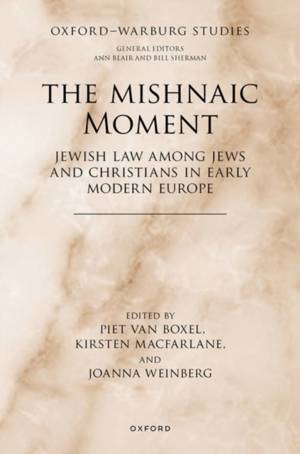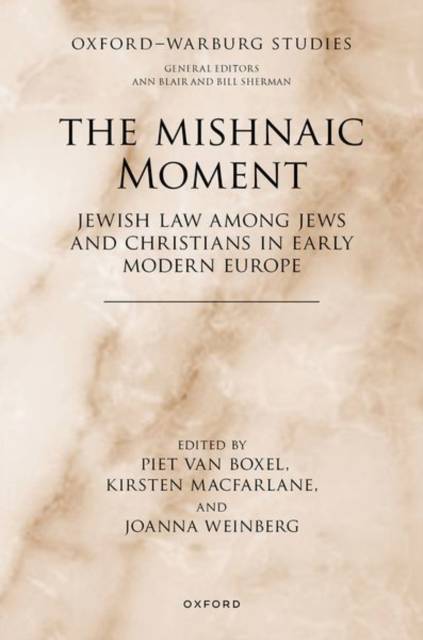
Je cadeautjes zeker op tijd in huis hebben voor de feestdagen? Kom langs in onze winkels en vind het perfecte geschenk!
- Afhalen na 1 uur in een winkel met voorraad
- Gratis thuislevering in België vanaf € 30
- Ruim aanbod met 7 miljoen producten
Je cadeautjes zeker op tijd in huis hebben voor de feestdagen? Kom langs in onze winkels en vind het perfecte geschenk!
- Afhalen na 1 uur in een winkel met voorraad
- Gratis thuislevering in België vanaf € 30
- Ruim aanbod met 7 miljoen producten
Zoeken
The Mishnaic Moment
Jewish Law Among Jews and Christians in Early Modern Europe
€ 217,95
+ 435 punten
Omschrijving
This collection of essays treats a topic that has scarcely been approached in the literature on Hebrew and Hebraism in the early modern period. In the seventeenth century, Christians, especially Protestants, studied the Mishnah alongside a host of Jewish commentaries in order to reconstruct Jewish culture, history, and ritual, shedding new light on the world of the Old and New Testaments. Their work was also inextricably dependent upon the vigorous Mishnaic studies of early modern Jewish communities. Both traditions, in a sense, culminated in the monumental production in six volumes of an edition and Latin translation of the Mishnah published by Guilielmus Surenhusius in Amsterdam between 1698 and 1703. Surenhusius gathered up more than a century's worth of Mishnaic studies by scholars from England, Germany, the Netherlands, and Sweden, as well as the commentaries of Maimonides and Obadiah of Bertinoro (c. 1455-c.1515), but this edition was also born out of the unique milieu of Amsterdam at the end of the seventeenth century, a place which offered possibilities for cross-cultural interactions between Jews and Christians. With Surenhusius's great volumes as an end point, the essays presented here discuss for the first time the multiple ways in which the canonical text of Jewish law, the Mishnah (c.200 CE), was studied by a variety of scholars, both Jewish and Christian, in early modern Europe. They tell the story of how the Mishnah generated an encounter between different cultures, faiths, and confessions that would prove to be enduringly influential for centuries to come.
Specificaties
Betrokkenen
- Uitgeverij:
Inhoud
- Aantal bladzijden:
- 428
- Taal:
- Engels
- Reeks:
Eigenschappen
- Productcode (EAN):
- 9780192898906
- Verschijningsdatum:
- 3/10/2022
- Uitvoering:
- Hardcover
- Formaat:
- Genaaid
- Afmetingen:
- 165 mm x 238 mm
- Gewicht:
- 825 g

Alleen bij Standaard Boekhandel
+ 435 punten op je klantenkaart van Standaard Boekhandel
Beoordelingen
We publiceren alleen reviews die voldoen aan de voorwaarden voor reviews. Bekijk onze voorwaarden voor reviews.








